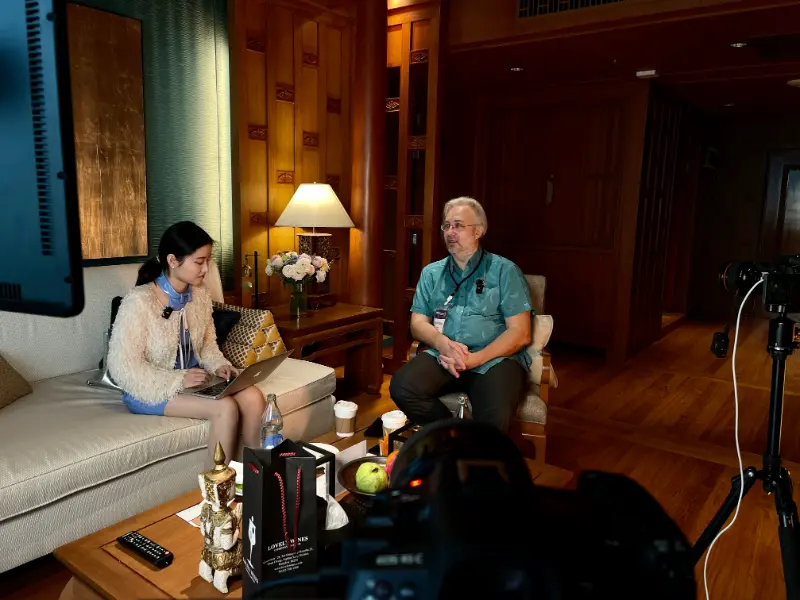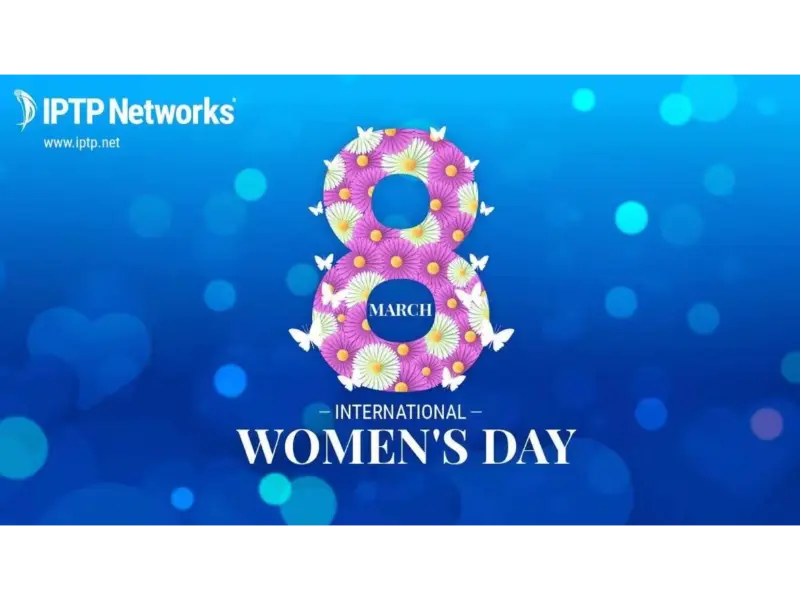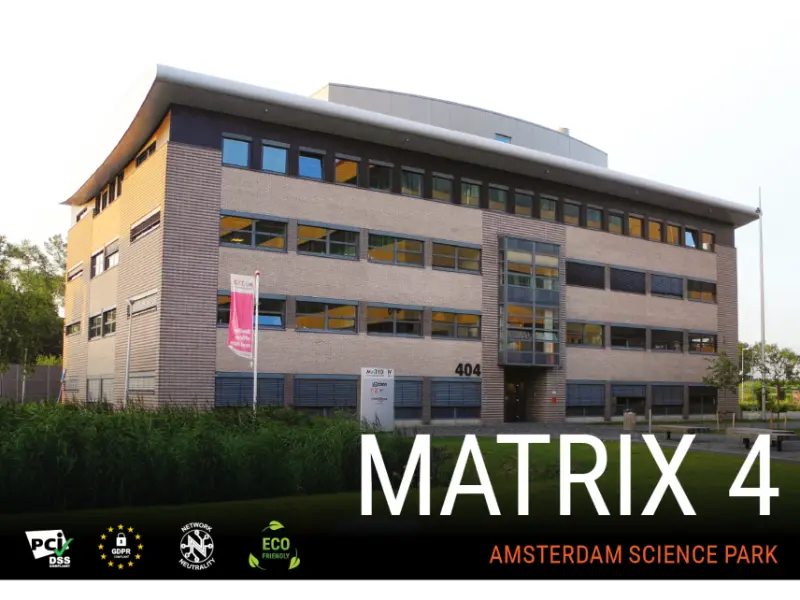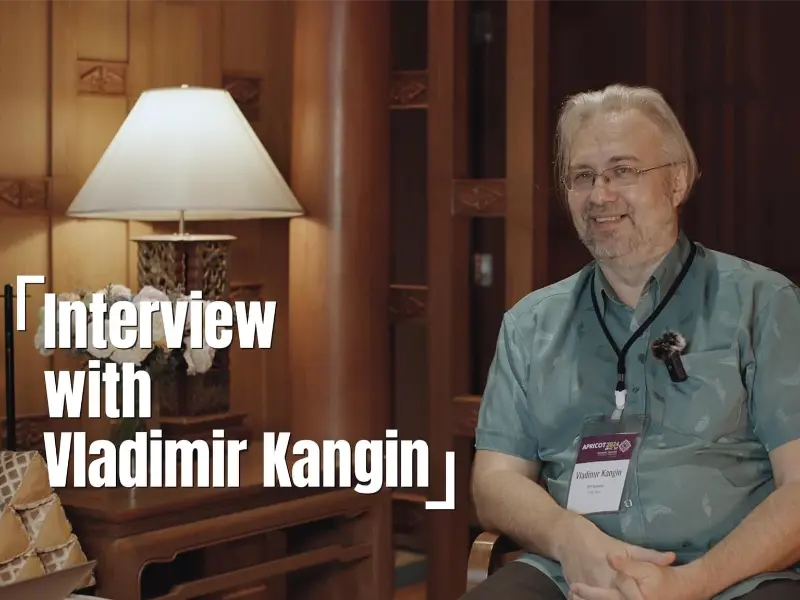- Vladimir Kangin, founder of IPTP Networks, transitioned from the USSR to Cyprus, where he established the current international group, a leading System Integrator, Tier-1 single-homed network ISP, and Software Development group of companies operating worldwide.
- Vladimir emphasises prioritising people over profits, fostering a sense of community within IPTP Networks akin to the kibbutz system. This approach has led to organic growth and a strong team culture.
- IPTP Networks sets itself apart by focusing on simplicity, quality, and community engagement rather than engaging in direct competition with other tech giants. They embrace partnerships and a community-driven ethos.
- Vladimir discusses the complexities of adhering to various countries’ internet regulations, which often require substantial resources and compliance efforts, including legal coordination teams and localised operations.
- IPTP Networks emphasises technical reliability, operational efficiency, and sustainability. They manage a vast network of data centres worldwide and prioritise eco-friendly practices, such as repurposing excess heat to benefit local communities.
Vladimir Kangin, founder, CEO, and director of IPTP Networks, embodies a unique blend of business acumen and community-driven values during a face to face interview with BTW Media at Apricot 2024 Bangkok. From humble beginnings in the USSR to founding a network of companies in Cyprus, Vladimir’s approach prioritises people over profits, fostering a familial atmosphere within his organisation. His insight into navigating global internet regulations and commitment to sustainability underscores IPTP Networks’ success. With a focus on technical reliability, compliance, and future AI integration, Vladimir’s leadership sets a sustainable precedent for the industry. IPTP Networks emerges as a beacon of ethical business practices, bridging the gap between operational efficiency and environmental responsibility.
Ready to have a taste of the incredible journey of this big warm community?
Also read: APRICOT 2024: Uniting the internet’s best engineering and operation minds
Also read: Paul Wilson resigns as Director General of APNIC

Self-introduction of Vladimir Kangin
My name is Vladimir Kangin, the founder, CEO, and director of IPTP Networks. I was born in the USSR, which no longer exists. It used to be one of the largest countries, but fell apart in 1991. I received my education in the old-style Soviet system, which provided me with many advantages to build something great in my life.
IPTP Networks’ evolution
In 1996, I moved to Cyprus and became a naturalised citizen. I established a company there in 1996, which has since grown into a larger holding group. We now have around 13 companies directly involved in the business, as well as affiliated companies that we partially own. All of these operate under the name IPTP Networks.
IPTP Networks is not a single company or holding; it is a group of companies. Some companies operate independently based on commercial ties, while others are part of the holding and operate as a single business entity.
Why Cyprus to kick things off?
In 1990 or 1991, during a visit to the United Kingdom, I encountered a memorable incident that left a lasting impression. While on the south coast of the UK, the car we were traveling in experienced a flat tire. Surprisingly, the host who was accommodating us didn’t know how to change it. This was shocking to me, as I believed every driver should know how to perform such a basic task. Despite offering to help, the host was hesitant due to concerns about potential injuries.
In a matter of minutes, the police arrived on bikes due to the rainy weather. It was unusual for me, coming from the USSR, to see police officers offering assistance without any ulterior motives. The officers requested a book on how to change a tire, and to my surprise, the host had one. Even in the pouring rain, they diligently followed the instructions in the book to change the tire. This act of kindness and professionalism left a profound impact on me, and I couldn’t help but admire the UK’s approach to public service.
This experience ignited my desire to engage in business in the UK. However, being from the sunny South of Russia, I struggled with the idea of living in a foggy, misty city environment. It wasn’t until 1996 that I had the opportunity to move to Cyprus, where I found a perfect blend of English-style living with bright skies and a warm climate. Cyprus felt like paradise to me, with its sun and sea, reminiscent of my hometown in Russia.
My connection to Cyprus was immediate and profound. It felt like coming home, and I knew I belonged there. The comfortable lifestyle and sense of belonging made Cyprus an ideal place to start my business and build a fulfilling life.
The growth secret of the thriving company over the 3 decades – Putting people first
At IPTP Networks, our ethos is far from ordinary—it’s a classic tale of prioritising people over profits. Our style is simple yet impactful: we focus on helping customers overcome challenges, providing genuine care, even if it means going the extra mile or offering favours. Our business philosophy revolves around a more humane approach, where customer satisfaction takes precedence over monetary gains.
Our growth story is one of organic evolution, driven by satisfied customers who refer others to our services. While we engage in aggressive marketing, the bulk of our leads come from customer recommendations, a testament to the exceptional service we provide. What sets us apart is our focus on enjoying the journey rather than chasing profits. We see business as a lifestyle, not just a means to financial gain.
At IPTP, we’ve actually cultivated a sense of community akin to the kibbutz style in Israel or the Soviet-era kolkhoz system. Our employees are more than colleagues; they’re part of a family. We prioritise the well-being of our team members, their families, and the community at large. This unique approach fosters loyalty, dedication, and a strong sense of belonging among team members.

While some may measure success by revenue, our definition of success lies in keeping our team and their families happy, fostering a strong community spirit. We resist attempts to compromise our values or corrupt our integrity, ensuring that our community-driven ethos remains unwavering.
In essence, our approach to business is unique and cannot be replicated overnight. It’s built on the foundation of genuine care, community, and a commitment to enjoying the journey. We invite other companies to consider prioritising employee well-being and community building, recognising that true success goes beyond monetary gains.
Simple, stupid, but unique: Coexisting with competitors in harmony
Competition in the market is not a significant concern for us. Our unique structure and focus on community set us apart from the rest. While other companies may try to emulate our approach, they cannot compete with us on the same level because they lack the community aspect that defines us.
Other companies can compete with us as ISPs, they can compete with us as data centres, they can compete with us as telecoms, but they cannot compete with us as a community. Because they are NOT. This is our strong uniqueness.
Vladimir Kangin
We’ve noticed that some companies inspired by our model attempt to replicate our strategies and concepts. However, our distinctiveness gives us a competitive edge. We believe in simplicity, following the KISS principle: Keep it Simple, Stupid. Our partnership with Level 3, now Lumen, as the sole provider ensures quality and customer satisfaction, even though our costs may be higher than competitors’.

Regarding competition, we don’t view other companies as adversaries but rather as entities coexisting in the market. We recognize the success of companies like Huawei, but we don’t see them as direct competitors. Our business operates differently, focusing on community and quality rather than solely on profit margins.
I don’t want to name competitors because they think that they are competitors we don’t see them competitors. So we see them like another company which has its own space for living.
Vladimir Kangin
Our role in the market is unique—we bridge the gap between companies, acting as a crucial layer in communication. We’ve even coined terms like “missing pieces” to describe our function. While we acknowledge competitors from regions like Russia, Europe, Africa, and Latin America, they often lack our community-oriented approach.
Our success lies in our operational efficiency and approach to business. Despite having smaller investments compared to some competitors, we’ve managed to achieve significant turnover and build a robust team.
We are a publicly registered company but have chosen not to pursue an IPO to avoid pressure from investors focused solely on financial returns. Our goal is to enjoy what we do and maintain our community-oriented approach.
Finding a company similar to ours would be a welcome development. If such a company existed, we would consider merging because aligning mental environments is crucial for success. However, the challenge lies in finding a company that shares our values and approach to business.
How to navigate the complex global internet regulations
This sensitive subject is not new to me, as I’ve been discussing it for approximately a decade through LinkedIn articles, with a particular focus on internet segmentation and fragmentation globally. This perspective stems from regulatory factors in numerous countries where we hold licenses and are familiar with their specificities. It’s worth noting that many more countries implement internet regulations than what is widely known.
For instance, South Korea, often regarded as a free country, has regulated its internet since its inception, and Google isn’t even accessible in the country as a deliberate measure. While countries like China, Russia, Iran, and North Korea are frequently discussed for their stringent internet controls, they aren’t the pioneers in this regard. They’ve followed the lead of countries like South Korea, and the UAE, where there has always been deep control over online content.
Delving into the internet industry reveals the extent of regulation and control. For us, this poses challenges and incurs costs, particularly due to regulatory compliance requirements. Depending on the country, we need to deploy lawful interceptor systems, scanners, triggers, and other mechanisms to comply with regulations. Compliance necessitates registering companies locally, even if they aren’t directly affiliated with our holding company. In China, we’ve faced challenges finding suitable partners due to the complexities involved, hence our operations in Hong Kong instead of mainland China.
Despite these hurdles, we’ve obtained telecom licenses in numerous countries and ensure compliance with all regulatory authorities. However, challenges arise when one authority seeks information that pertains to another territory under a different entity. In such cases, we emphasize legal channels, including courts and Interpol, to obtain information.
Our commitment to regulatory compliance necessitates maintaining legal and regulatory coordination teams, which adds to our operational costs. Nonetheless, it’s imperative for us to protect our community, and thus, these expenses are deemed necessary.
Pop quiz
What key factor makes IPTP Networks so special?
See the answer at the bottom of the article.
Beyond compliance: A tale of technological reliability, redefined efficiency, and AI Integration
Fostering regulatory compliance and reliability
In light of regional regulations, ensuring reliability and security becomes intrinsically tied to compliance. Compliance with local regulators is pivotal for establishing reliability and forcefulness from a regulatory standpoint. We maintain technical reliability through a substantial infrastructure and a team of around 100 engineers. Our team consists of seasoned professionals, including those considered truly ‘senior’ based on their rich experience. We also have top-tier experts who mentor junior staff to facilitate rapid growth within the team.
Exclusive management software
Twenty years ago, we embarked on developing our management software, now comprising approximately 1 million lines of Java code spread across seven servers worldwide. This system ensures consistent response times for users globally, irrespective of their location. Data is replicated in real-time across our network, enhancing service reliability. Our team operates round-the-clock, with network and security operations, customer support, and monitoring functions all seamlessly integrated within our system.
Efficiency in global operations supported by a lean but mature workforce
Our competitive advantage lies in our ability to manage 250 data centres worldwide with a relatively small workforce, owing to the efficiency of our systems. Our internal controls enable us to match tasks with the most suitable team members based on their skills and psychological profiles. This personalised approach ensures optimal performance and enhances our company’s reputation.
Continuous system optimization and AI integration
We continuously strive for improvement, leveraging a global HR team to conduct incident studies and optimise our systems further. Our goal is to create a platform where operations run seamlessly, laying the groundwork for future integration of AI to enhance efficiency and sophistication. The cooperation with AI represents the next frontier in enhancing our operational capabilities and delivering an unparalleled user experience.
Sustainable strategies: Building eco-friendly data infrastructure and community connections
We prioritise environmental responsibility and long-term benefits over short-term financial gains. Our approach is rooted in a green ethos, ensuring that our operations have minimal impact on the environment. This philosophy guides our decision-making process, steering us towards sustainable practices and long-term viability.

In 2009, we embarked on a significant project to establish our own data centre in Amsterdam Science Park, Netherlands. This venture involved extensive planning and collaboration to secure permissions and arrange necessary agreements. By 2016, the data centre was operational, designed not only to meet our needs but also to benefit the local community. We engineered the facility to utilise excess heat generated by the servers to warm classes at Amsterdam University, a testament to our commitment to resource efficiency and community engagement.
While we operate our own data centre, we also rely on leased spaces from various global providers such as Global Switch and Digital Realty. Our selection criteria for partners prioritise quality and sustainability, aligning with our values and long-term goals.
Also read: Google invests $1 billion in green UK data centre
Our dedication to sustainability extends beyond our operational infrastructure; it’s embedded in our corporate culture. We value our employees, customers, and communities, striving to uphold respect and integrity in all our interactions.
Enhanced efficiency and customer engagement: IPTP Networks’ AI-powered website update
Recently, the group has updated its website, integrating AI to enhance system efficiency. The new version surpasses its predecessor, offering improved functionality. Visitors can explore a range of products, including Lagblaster, an internet optimization tool. The website also features a live chat for instant customer support, ensuring prompt and accurate responses from the dedicated team. Unlike platforms relying solely on chatbots, IPTP Networks prioritises human interaction for a friendly and efficient customer experience. Users are encouraged to take advantage of the website to address their needs effectively.
Answer to the quiz: the sense of community!

